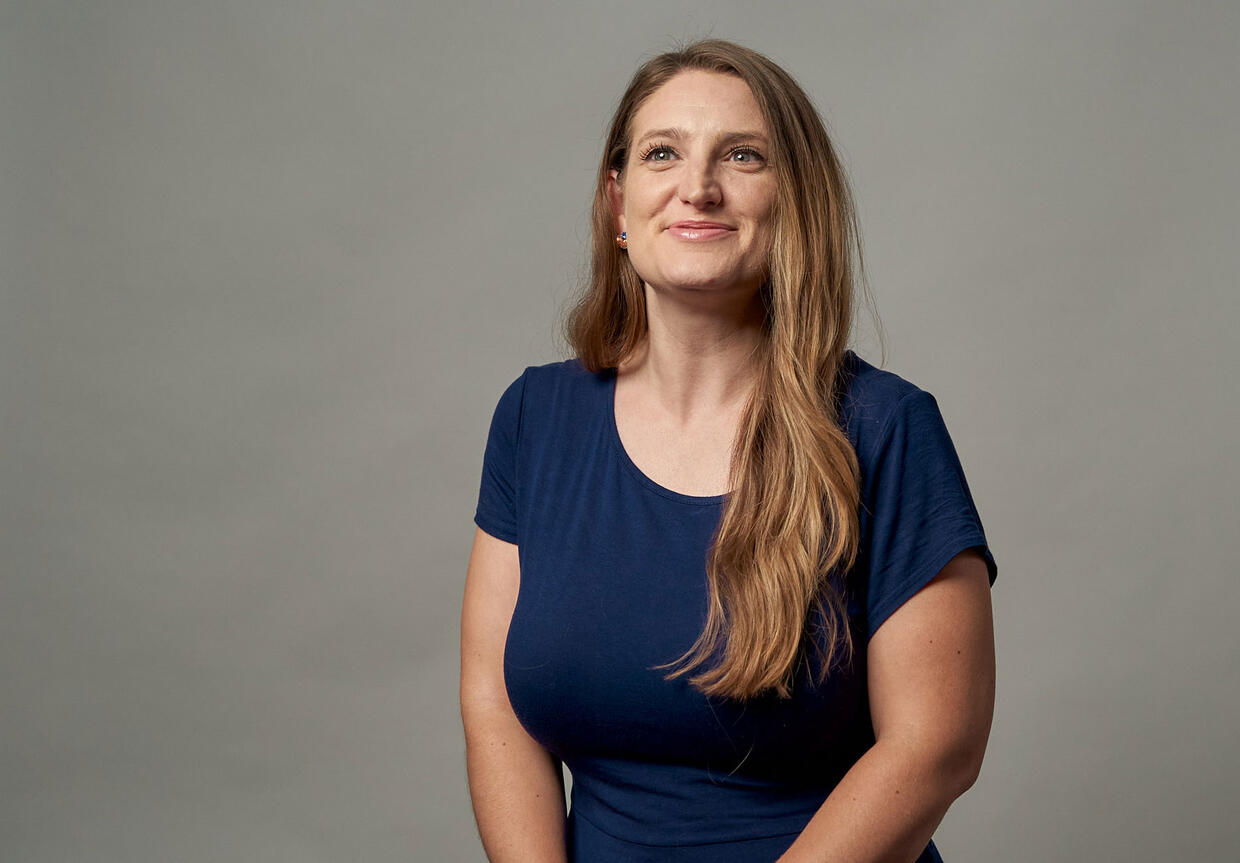Photo: Brittany Taylor, MCB Counselor
How MCB helps:
Brittany Taylor, MCB Counselor
“Losing your vision is a very big transition for anyone. It's natural and important to grieve and to feel the loss. And even to feel angry. We at MCB do reach out immediately, but we do so by inviting them to engage with us when they're ready.”
Brandon Rollins, MCB Client
“MCB was in touch with me for years, but I just wasn't ready. I didn't want a cane or any of the assistive tech. Some was just adolescence; I just didn't want to be the ‘blind, not normal kid.’ But I started to get older and reconsider that my approach just wasn't working.”
Sara Regan, parent of two blind children/MCB Clients
“At first I couldn't even say the name to my kids — the ‘b’ word. It was ‘Mass Commission,’ not ‘For The Blind.’ With two kids losing their sight, it was overwhelming for me. More than the kids knew.”
Jimmy Lopez, MCB Client
“I remember being a bit of a rebel (at 12 years old). I didn't want their help, equipment, or anything. I didn't want to admit I needed help, but obviously I did. I mean, I was literally standing up right behind my teacher to see what she was writing on the board. I had no idea there were other tools I could use.”
Desiree Eusebio, MCB Client
“I was in such denial that I really didn't do anything with them. I didn't want their help. I listened to them, but I hoped they would leave me alone. But it took me a long time to really begin to open up.”
Brittany Taylor
“I try to be sensitive to where the client is. A client who suddenly lost their vision can be different than someone who has lost vision over time. Or someone who's 15 years old versus 60. Or a parent or family.”
Mayanne MacDonald-Briggs, MCB Counselor
“Sometimes it can take time. Some people never accept the help. But for those who do, we need to meet them where they are along their journey.”
Margaret Detch, Parent of a blind student, MCB Client
“Our first meetings, there was so much information it was almost hard to digest. But our counselor reassured us not to stress about knowing it all because she was there to be our ally and advocate. She just wanted us to know the services were there when we were ready.”
Kara Sittig, MCB Supervisor and Counselor
“It's not easy to have an open mind about being considered a blind person. But we try to introduce them just a little to what life might look like and open their mind even a little to possibilities.”
Brittany Taylor
“I usually bring along a ‘bag of tricks,’ which are small simple tools like dots for your microwave oven's buttons or a signature tool to help you sign things in the right places. They try these little things, and it opens them up to trusting you. One little step at a time, always on their terms.”
Brandon Rollins
“Eventually I agreed to attend the Carroll Center through MCB, and it was such a moment of clarity. Meeting others, hearing what they did. It really turned me around; I started to throw myself into their services with abandon. I'm so glad I did.”
Desiree Eusebio
“At one point I realized I'm grateful to be alive and I can still do things I didn't think I'd be able to. I began to remember who I was and told MCB that I really was ready. They were so happy to see me — no shame, just help and caring. That was when things really started to change for the better.”
